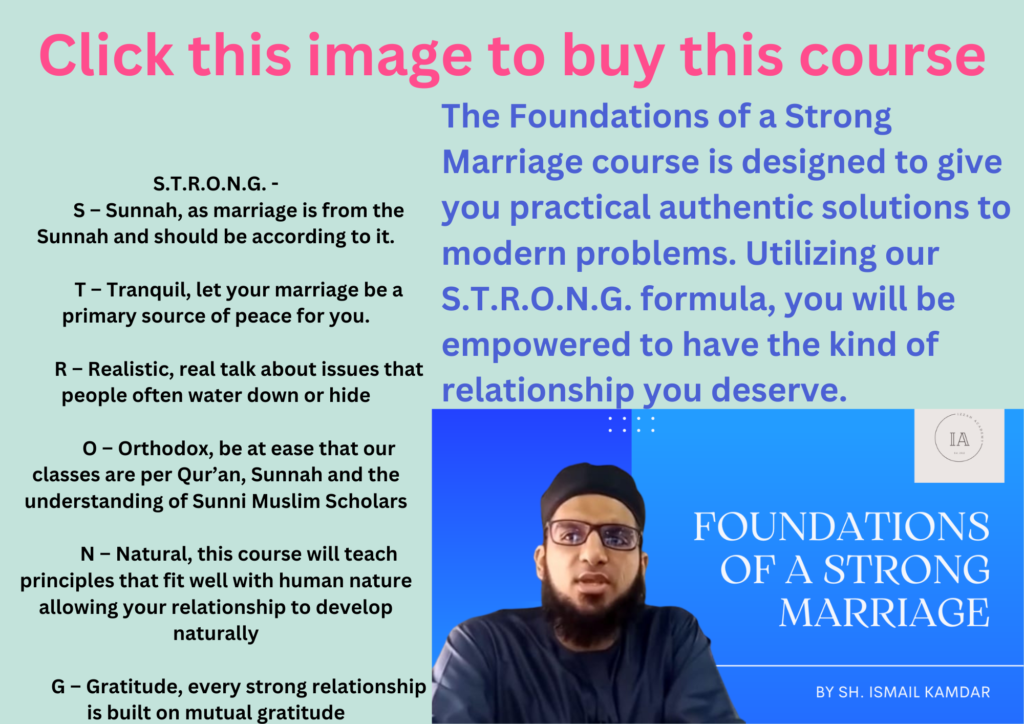Ibn Abbas reported the Messenger of Allah Sallallahu ‘alayhi wa sallam said, “Take advantage of five before five: your youth before your old age, your health before your illness, your riches before your poverty, your free time before your work and your life before your death.” (At-Tirmidhi)
We often take for granted the state of our good health and fail to realize that our health is a gift bestowed to us by Allah subhanahu wa ta’ala. The purpose of our lives is to worship Allah subhanahu wa ta’ala and obey His Commandments. Therefore, we must take good care of our health and avoid illnesses in order to achieve this goal. Luckily, we Muslims are blessed with the Quran and Hadith which was revealed to us by Allah subhanahu wa ta’ala. Apart from urging us to abstain from forbidden matters, the Quran and Hadith additionally offer us guidance on how to follow a healthy and balanced diet. These two reliable sources provide us with proper guidelines and recommendations for maintaining our physical health.
Benefits of Establishing Salah
In addition to having a high status in Islam, Salah has numerous spiritual and physical benefits. The Prophet salallaahu ‘alayhi wa sallam said, “Verily, the prayer has a cure in it.” (Sunan ibn Majah). A research suggests that Salah prayer improves muscular functions on a musculoskeletal, psychological and intellectual level. The physical actions while praying also aid in the prevention of deep vein thrombosis. Standing and sitting repetitively throughout the day stimulates the pumping process in leg muscles, increasing blood flow to the heart and shifting blood from peripheral to central veins, reducing edema and the likelihood of thrombi formation.
Benefits of Fasting
Fasting is one of the five pillars of Islam and Muslims are encouraged to fast from sunrise to sunset. Ramadhan presents an opportunity for Muslims to improve their health by providing beneficial guidance on issues such as nutrition, dietary habits and smoking cessation. Fasting helps in breaking down fat reserves which in turn mobilizes and eliminates stored toxins. Fasting also helps to overcome bad habits such as tobacco, nicotine and caffeine addictions. While fasting, the glucose reserve is initially used to supply energy. Once the stored glucose gets depleted, fat becomes the body’s next storehouse of energy. Utilizing fat for energy promotes weight loss, preserves muscle mass and eventually lowers cholesterol levels. Furthermore, losing weight lowers blood pressure and improves diabetes control.
“………And to fast is better for you, if only you knew.” (Quran 2:184) (Saheeh International).
Eating in Moderation
In order to preserve our health, it is crucial to consume food in moderation. In addition to promoting obesity, overeating also leads to laziness which obstructs the believer from worshipping Allah subhanahu wa ta’ala. Excessive consumption of food hardens the heart, impairs cognitive function, causes lethargy and thereby, makes it harder to control one’s lusts and cravings.
Allah subhanahu wa ta’ala states in the Quran, “Eat and drink, but avoid excess.” (Quran 20:81) (Saheeh International).
Miqdam ibn Ma’d reported, the Messenger of Allah salallaahu ‘alayhi wa sallam said: “The son of Adam cannot fill a vessel worse than his stomach, as it is enough for him to straighten his back. If he cannot do it then he may fill it with a third of his food, a third of his drink and a third of his breath.” (At-Tirmidhi)
Therefore, Islam instructs us to eat moderately.
Prohibition of Intoxicants
The Quran condemns the consumption of intoxicants and psychotropic drugs that cause one to lose connection with Allah subhanahu wa ta’ala. The repercussions of drug usage impact not just the individual but also their loved ones, family, community and even the society at large. Regarding the use of intoxicants, Prophet Mohammad salallaahu ‘alayhi wa sallam has stated that, “Anything which intoxicates in a large quantity is prohibited even in a small quantity.” (Sunan ibn Majah). The harms associated with alcohol intoxication include accidents, stroke, acute alcohol poisoning, diabetes mellitus, neuropsychiatric and cardiovascular diseases. Allah subhanahu wa ta’ala states that the disadvantages of alcohol are greater than its advantages.
“They ask you about wine and gambling. Say, “In them is great sin and [yet, some] benefit for people. But their sin is greater than their benefit.” And they ask you what they should spend. Say, “The excess [beyond needs].” Thus Allah makes clear to you the verses [of revelation] that you might give thought.” (Quran 2:219) (Saheeh International).
The psychological and social effects of alcohol misuse include anger, anxiety depression, amnesia, impaired relationships, attempted suicide, theft, domestic violence, assault, aggression, family arguments and unwanted pregnancies. The short-term enjoyment gained by these addictions produces substantial long-lasting consequences to both mental and physical health.
“O you who have believed, indeed, intoxicants, gambling, [sacrificing on] stone alters [to other than Allah], and divining arrows are but defilement from the work of Satan, so avoid it that you may be successful.” (Quran 5:90) (Saheeh International).
Therefore, many reverts are drawn to Islam because of its distinctive characteristic, which makes it a truly beautiful religion.
In Islam, physical activity is mustahabb (recommended) because of the physiological and health benefits it provides. It is also recommended as a recreational activity. Moreover, Prophet Mohammad salallaahu ‘alayhi wa sallam urged the Muslims to work hard, be active and begin their days early, each of which are prerequisites of good health.
To conclude, following the Islamic teachings will naturally result in a healthier way of living. Islam advocates comprehensive nurturing of Muslim children and gives importance to both physical and spiritual well-being of Muslims. Furthermore, it is expected of every Muslim to have a healthy lifestyle and take excellent care of their physical well-being. Moreover, Muslims believe that there is a cure for every ailment, therefore, we are encouraged to seek treatment for our illnesses. In Islam, healthcare is based on a way of life that attempts to build an environment that is healthy and resistant to ailments.
Written by Sister Sumayya Syed





